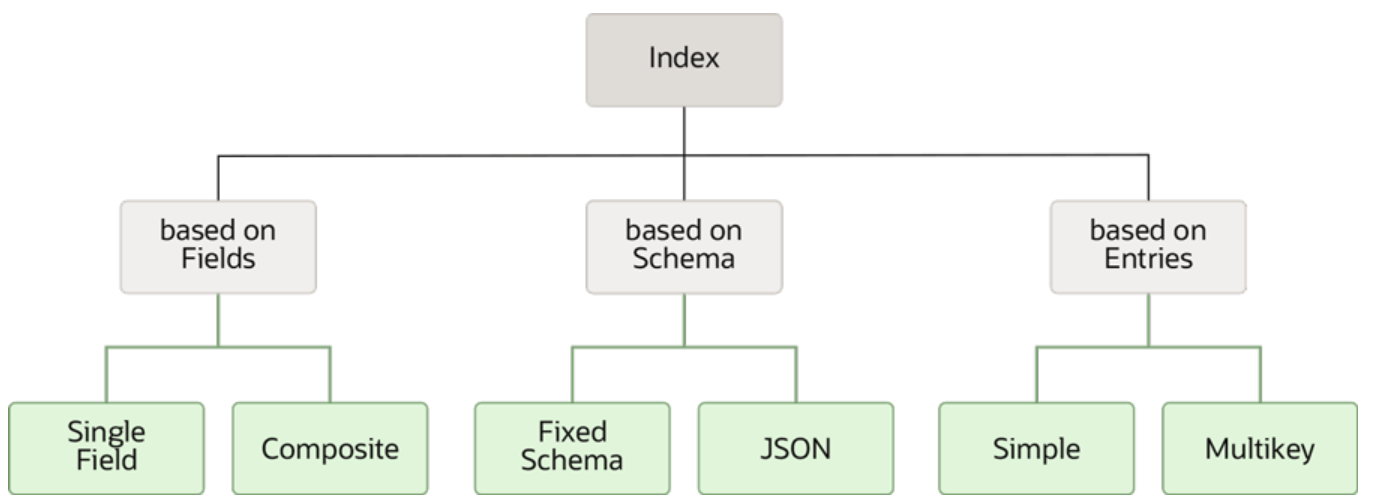Classification of Indexes
Indexes can be classified based on fields, schema, entries, or a combination of them.

Description of the illustration images_types.png
Single Field Index: An index is called a single field index if it is created on only one field of a table.
Composite Index: An index is called a composite index if it is created on more than one field of a table
Note:
A data type is called precise if it is not one of the wild card types. Items that have precise types are said to be strongly typed.Schema-less Index (JSON Index): An index is called a JSON index if at least one of the fields is JSON data or fields inside JSON data.
Simple Index: An index is called a simple index if for each row of data in the table, there is one entry created in the index.
Multikey Index: An index is called a multikey index if for each row of data in the table, there are multiple entries created in the index.
You can create indexes on the values of one or more SQL built-in functions.
List of functions that can be indexed:
The following subset of the Built-in functions can be indexed.
- year
- month
- day
- hour
- minute
- second
- millisecond
- microsecond
- nanosecond
- week
- length
- replace
- reverse
- substring
- trim
- ltrim
- rtrim
- lower
- upper
- modification_time
- expiration_time
- expiration_time_millis
- row_storage_size
See Built-in functions for more details on what a built-in function is and how to use these functions.